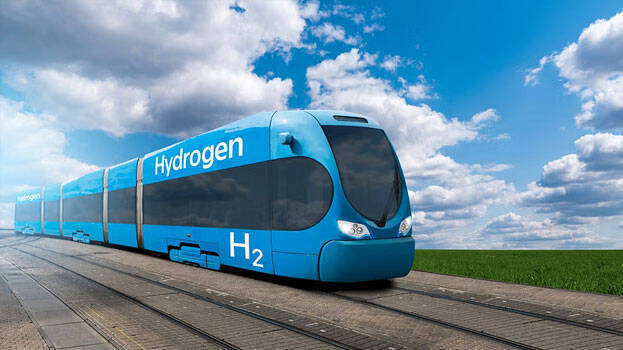

Indian Railways is gearing up for a major transformation in the transportation sector. Following the transition from diesel to electric engines, the Ministry of Railways is now preparing to introduce India's first hydrogen train. Reports suggest that the country's first indigenously designed hydrogen train will start operating on the Jind-Sonipat (90 km) heritage route in Haryana from March 31st. The Research, Design & Standards Organization (RDSO) has already developed the blueprint for the hydrogen train. With this, India is set to become one of the few countries utilizing hydrogen fuel technology and will be the fifth country in the world to have a hydrogen train.
Hydrogen trains use fuel cells that generate electricity through a reaction between hydrogen and oxygen. The train was manufactured at the Integral Coach Factory in Tamil Nadu. Private suppliers will be relied upon to provide compressed hydrogen, and hydrogen production and storage plants will be set up with private sector participation. Authorities had previously stated that diesel and DEMU trains would be converted to hydrogen trains.
Indian Railways has described hydrogen trains as part of the country's green initiatives. Initially, hydrogen trains will operate on routes such as the Darjeeling-Himalayan Railway, Nilgiri Mountain Railway, Kalka-Shimla Railway, Matheran Hill Railway, Kangra Valley, Bilimora-Waghai, and Marwar-Devgarh Madriya.
Each hydrogen train will have six coaches, with 100-kilowatt fuel cells in each coach. The train will emit only steam as a byproduct. It can travel at a speed of 140 km per hour. The construction cost of the train is Rs 80 crore. Rs 70 crore has been spent on upgrading the Jind-Sonipat route for its operation. Since hydrogen trains do not emit harmful gases like carbon dioxide and nitrogen oxides, they provide a more environmentally friendly travel option. Additionally, hydrogen can be produced using renewable energy sources such as wind, solar, and hydropower, making these trains even more sustainable.